John Dunn, miller, wheat merchant, and philanthropist, is often thought of as ‘the father of Mount Barker’. He was born in Devon, England in 1802, into a large but poor farming family. He received a basic education before being apprenticed to a miller at the age of twelve. By 25 he was managing a steam-powered mill. He married in 1828. In the late 1830s Dunn heard good reports of successful farming in the Onkaparinga district of South Australia from several of his brothers, so decided to move his family there. With his wife and four children, he arrived on the Lysander in 1840.
The Dunn family took up an 80-acre lot near Nairne, and John began milling by wind power – the first wind-powered mill in the colony. In the early 1840s, while waiting for a mill engine to arrive from England, Dunn went to work with John Ridley, who was developing a reaping machine. In 1844 Dunn went to Mount Barker to harvest using an improved Ridley reaper, and was promised land by Captain Finniss and other colonial developers if he started a mill there. The long-expected engine finally arrived, so Dunn began to build his mill at Mount Barker, well-situated between the wheat producers of the colony’s south and the markets in the city. According to the South Australian Chronicle, over the next few years of Dunn faced many difficulties but because of his constant hard work ‘none were insurmountable’. For example, the market for Dunn’s flour fluctuated wildly during the gold rushes of the 1850s, with a ton selling for 60 pounds one week and 30 pounds the next. As family members joined the enterprise and the company’s area of operation increased, Dunn & Co’s flour gained an excellent reputation, and was sent as far abroad as Mauritius and South Africa.
As well as his business interests, John Dunn was active in serving and promoting the Mount Barker district, not always without scandal. He represented Mount Barker in the first South Australian House of Assembly in 1857, and was unseated in 1868 over accusations of election bribes. The following year he was elected to the Legislative Council, from which he retired in 1877.
A famed philanthropist, Dunn presented Mount Barker’s Methodist congregation with an entirely new church costing 4000 pounds, ‘thoroughly equipped with a splendid organ’. He established poor cottages, contributed to a new recreation oval, paid off the debt on the local showgrounds, and, wrote the Chronicle, ‘made it a rule to give away at least 500 pounds a year in charity’. On his ninetieth birthday he gifted the town a park. Dunn died aged 92, leaving mills worth about 150,000 pounds that exported 20,000 tons of flour a year. He also left almost 15,000 pounds to charity.


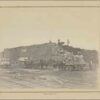

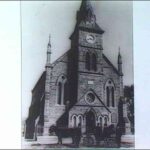
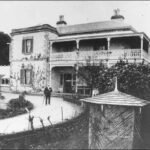
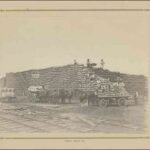
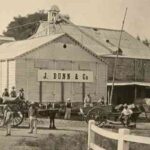

Comments